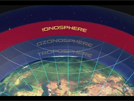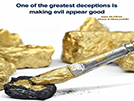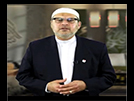Consideration
- Details
- Hits: 2351
Consideration
The Qur'an at several places urges us to consideration, which means to look at things carefully and inquisitively and observe them attentively along with deep thinking. Look at the following verses carefully:
"Say: Look at what is in the heavens and the earth ". (Surah Yunus, 10: 101).
"Say: Travel across the land and see how He originated the creation" . (Surahal‑Ankabut, 29:20).
"Consider what the fate of the miscreants was" : (Surahal‑A'raf, 7:86).
"Do they not consider how the cannel was created, how the heaven was raised, how the mountains were set up, and how the earth was spread?" (Surah al‑Ghashiah, 88:17 ‑ 20).
We see that in all these cases consideration should be so careful, accurate and effective that it may provide an answer to the questions which may arise and solve the difficulties which may be faced. It should be to the accompaniment of deep thinking and careful study.
This consideration, reflection and contemplation is applicable to all the realities of the world and is not confined to any particular sphere. The Qur'an counsels to consideration in divergent fields. For example it says:
"Surely in the creation of the heavens and the earth and the alternation of the night and the day, there are signs for men of understanding, who remember Allah, standing, sitting and reclining, and consider the creation of the heavens and the earth. (They say): Our Lord! You have not created all this in vain. Glory be to You! Save us from the torment of Fire". (Surah Ale Imran, 3:191 ‑ 192).
There are hundreds of similar verses in the Qur'an which call man to the fruitful study and investigation of this vast world. In respect of history the Qur'an says:
"Relate these stories to them so that they may think over them". (Surah al‑A'raf, 7:176).
There are other verses which consider the ups and downs in the history of the ancient nations and the causes of their progress and downfall to be a lesson.
“We will show them Our signs in all horizons and within themselves until they will clearly see that He (Allah) really is ". (Surah Fussilat, 41: S 3).
Regarding the knowledge imparted through revelation, the Qur'an says:
"Do they not meditate on the Qur'an, or are there locks on their hearts?"(Surah Muhammad, 47:24).
Knowledge and science in modern usage the word, `knowledge' has been limited to experimental knowledge. In fact there are two words. One is `knowledge', which covers all kinds of learning and information, and the other is science which exclusively means knowledge based on experiment and induction. With the limitation of knowledge to scientific knowledge, a fallacy has arisen. It is said that:
(a) Any information not based on knowledge has little value, and hence it is not convincing.
(b) Knowledge means experimental knowledge, and hence any knowledge not obtained through experiment is worthless and not fit to be followed.
You may observe that in the first sentence the word knowledge has been used in its general and wider sense, and consequently this sentence gives a meaning about which there can be no doubt. It is true that any information not based on knowledge, has little value. But in the second sentence the word, `knowledge' has been qualified and used in a limited sense. The result is that there are people who say that it is only experimental knowledge which is reliable and has value. They have gone so far that to believe their own existence they want to light upon human soul through a surgical operation, and to come across Allah during a space journey!











